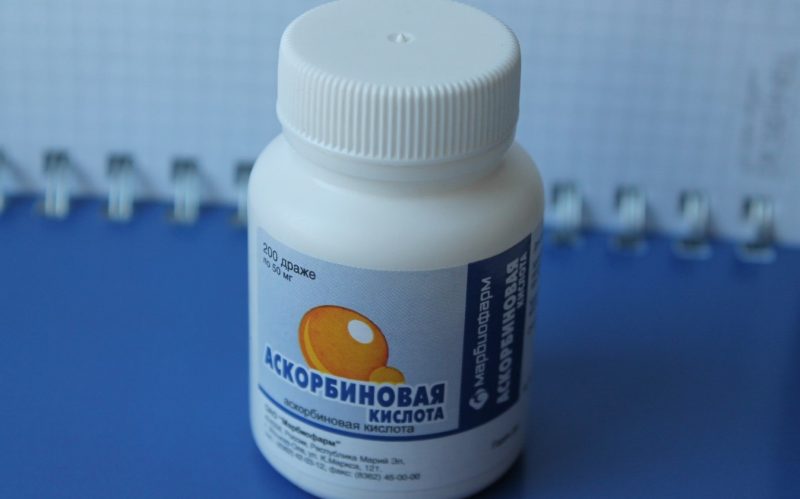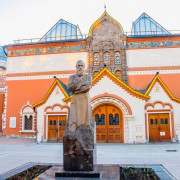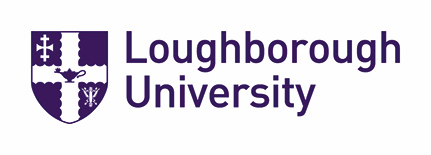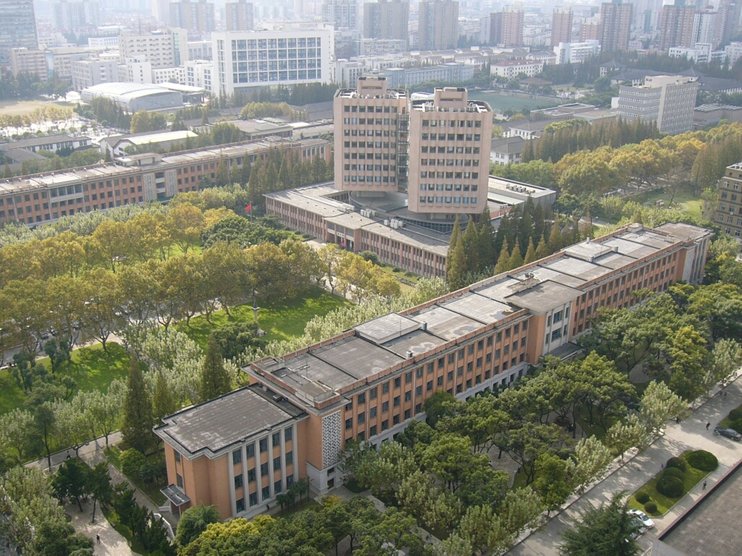Как не запутаться в bfa, mba и других ступенях высшего образования за границей
Содержание:
- Who teaches this course?
- Associate Degrees
- Potential Features of Masters Degree Programs
- Faculty: Professors and Practitioners
- Ссылки
- What Master’s Degree Degree Should You Get?
- Doctoral Degrees
- Advanced Entry: Two-Semester Program
- Choosing a Degree
- some university courses
- What Are The Requirements For An MA Degree?
- Career-Oriented Course Work
- How Long Does It Take To Get An MA Degree?
- Пожалуйста, помогите c переводом:
- Противопоказания
Who teaches this course?
You will learn from a mixture of permanent teaching staff, masterclass speakers and guest lecturers, all of whom are publishing professionals with many years of experience.
Lecturers have each worked in publishing for at least two decades and include the well-known industry commentator and author of How to Market Books, Professor Alison Baverstock, and current practitioners Emma Tait and Clare Somerville. They are also experienced industry trainers and qualified higher education teachers.
Postgraduate students may also contribute to the teaching of seminars under the supervision of the module leader.
Associate Degrees
An associate degree is typically completed in two years of full-time study, but may take longer for part-time students. These undergraduate programs can be found at community colleges, vocational schools, technical colleges, and some universities. In general, associate degrees fall into three different categories: Associate of Arts (A.A.), Associate of Science (A.S.), or Associate of Applied Science (A.A.S.).
Associate degrees are a great fit for career-oriented students who want to enter a technical or vocational trade that requires some post secondary education. Along with often being the quickest and cheapest route to a formal degree, an associate program can also be a stepping stone to a four-year degree. Many schools offer students the option to apply credits earned from an associate degree, which is generally 60 semester credits, towards a bachelor’s degree.
Graduates with an associate degree had median annual salary of $53,700, compared with $37,960 for high school graduates. They also had a better unemployment rate.
*Source: Bureau of Labor Statistics, 2018
A.A. Associate of Arts
The associate of arts is a basic-level undergraduate degree granted upon completion of a two-year program, usually at community or junior college, technical college or trade school. As such, these are typically a jumping off point towards pursuing a full bachelor’s degree.
A.S. Associate of Science
Similar to the A.A., the associate of science degree is the culmination of a two-year academic program. The A.S. is usually awarded to junior college students enrolled in science or tech-related programs.
Associate Degree Related Content
- Associate Degree Overview
- Associate Degree Programs in Medical Assisting
- Associate Degree Programs in Medical Billing & Coding
Potential Features of Masters Degree Programs
The basic premise behind earning a Master’s degree is that the student has achieved a “high-order overview” of their academic discipline. This could involve the following.
- Advanced knowledge of a specialized body of theoretical and practical topics
- Highly developed skills in analysis and critical thinking
- Understanding of professional application of their subject matter
- Ability to solve complex problems
- Independent thinking
While Masters programs vary in scope, these capabilities might be achieved through rigorous coursework, a thesis paper or final project, an internship or supervised practicum, exams and case studies.
Faculty: Professors and Practitioners
Our faculty combine academic expertise with years of professional experience as translators and interpreters performing high profile work at intergovernmental organizations such as the United Nations, at the World Economic Forum, at the Olympics, for the White House, in the U.S. State Department, in the German Parliament, in literature and research, in nonprofit organizations, and in private businesses.
Together with career advisors, our faculty mentor students to ensure that they receive the academic and professional experience that will help them realize their career goals. Meet our faculty.
Ссылки
What Master’s Degree Degree Should You Get?
Use our subject selection filter at the top of this page or start with the list below to find some of the most awarded degrees (by subject). You will find accredited M.A., M.S., M.F.A., M.B.A., P.S.M. and other specific master degree programs with the help of our subject selection and sponsored program listings. The broad list of masters degree programs include the following subjects:
- Masters in Business
- Masters in Psychology
- Criminal Justice & Legal
- Education
- Fine Arts
- Health & Medicine
- Liberal Arts & Humanities
- Math, Science & Engineering
- Public Affairs & Social Sciences
- Religious Studies
- Technology
Doctoral Degrees
A doctorate is the highest level of academic degree awarded by universities, and can take anywhere from three to eight years (or more) to complete. Some doctoral programs require students to already have a master’s before enrolling, while others can be started directly after completion of undergraduate study.
There are many different types of doctoral degrees, but the most common is the Doctor of Philosophy (Ph.D.). Depending on the specific degree awarded, earning a doctorate can qualify graduates to teach at the university level, or work in a position that requires extensive training and education. Psychologists and medical doctors are two examples of professionals who must hold doctoral degrees in order to become licensed to practice in their field.
Workers with a doctoral degree had both the highest median annual salaries — more than $100,000 — and the lowest unemployment of any level of educational attainment.
*Source: Bureau of Labor Statistics, 2018
Ph.D Doctor of Philosophy
Despite what the name might suggest, this isn’t a degree for philosophers exclusively. A Ph.D is the doctorate-level degree granted in a variety of different disciplines. These are typically research-intensive programs pursued by those who’ve already acquired bachelor’s and master-level credentials in their field of study.
Psy.D. Doctor of Psychology
The Psy.D.is similar to a standard doctorate degree, but granted specifically for students pursuing psychology practice.
Advanced Entry: Two-Semester Program
Chinese
Each year, a group of highly qualified Chinese translation and interpretation candidates are selected for the Advanced Entry program, which allows them to complete the program in two semesters. These students have typically earned a master’s degree from a recognized translation and interpretation program or have at least two years of relevant full-time professional experience.
Advanced Entry students test out of the first year of courses by passing a rigorous exam offered at a variety of test locations in China or on campus at the Institute. Find out more about our .
Other Languages
Choosing a Degree
Although you must select a specific degree when you apply, you will be exposed to many aspects of both translation and interpretation during your first year. After these two semesters, you, your faculty, and your academic advisor will know more about your strengths and interests, and you can finalize your degree choice and focus your studies. They are all two-year, 60-credit programs.
MA in Translation
Anything that is written is a potential translation assignment. The MA in Translation prepares you to translate treaties, laws, and press releases; user manuals, bidding specifications, and engineering plans; novels, poems, plays and subtitles for film and video; handwritten letters, medical textbooks, and historical documents; and much more. The software and localization industry also relies heavily on translators to adapt programs and user manuals to other linguistic and cultural environments. All students in the MA in Translation also receive a solid foundation in translation technology (e.g. computer-assisted translation or CAT tools) and terminology management and, with the proper prerequisites, can take additional Localization Management electives such as website localization, multilingual desktop publishing, and games localization.
MA in Translation and Interpretation
Although translation and interpretation have much in common, the practice of each profession requires different skill sets. A translator renders the written word from one language to another. An interpreter renders the spoken word from one language to another. Some employers expect you to be able to perform both tasks and many students find that they greatly enjoy the balance of both. The Middlebury Institute is one of few graduate programs in the world that offers a combined degree that prepares you for expert professional work both in translation and interpretation. The degree also includes a grounding in translation technology (e.g. computer-assisted translation or CAT) and allows for additional localization-management electives.
MA in Conference Interpretation
A conference interpreter enables participants in multinational meetings, such as international conferences, the Olympics, diplomatic events, global business collaborations, and international litigation, to communicate with one another in a seamless fashion, making the language barrier almost imperceptible. Our MA in Conference Interpretation prepares you to interpret in two modes: consecutive and simultaneous. The degree also prepares you to sight translate documents aloud in a different language as needed during meetings or as an aid to simultaneous interpretation in a booth.
some university courses
специалитет
среднее образование9 классHigh school no degreeкарта заполнениеЗаочное образование в заявок dvмедицинский университетVocationalобразование для грин кардObrazovanie Green cardhigh schoolмагистр degree или diplomaСреднее профессиональное образованиеprimary school onlyлотторея виз сша образованиеMasters degreeзаочное высшееэкстернсреднее-специальноеlotteryнужно ли указывать что есть аттестат после 9 классов и 11экстерномпомощь в заполненииDoctorate Degreeлотерея грин кард 10 классов образованияDV vocational schoolоброзование5 лет университетзаполнение заявкиvocation schoolsобразование при заполнении DVgreen card образованиеЭкстерн dvнеправильно образованиезаочноевечерняя школа можно ли подавать на грин картубауманауказал высшее образование в заявке на грин ккартуможно выиграть в грин карту после окончания 9 го класса9 классов грин кардdv lottery образованиемедицинское образование грин картаможно ли выиграть грин карту высшее образованиеВыиграл грин кард образование не полни средникак указать в лотерее грин кард медицинское образованиеокончанин 11 класса грин кардdegreeсредняя школа 11 классов что указыватьдва диплома специалиста и магистраgreen card bakalavrvocational school diplomaдиплом специалистаттестатнеправильно указал образованиеесли среднее образование получено экстерном можно ли подавать заявку на участие в лотереемедицинское образовыание лотерея грин карта заявка11 классОбразование врач11 классовSome doctorate level coursesспециалист это какое образование гринкартаукраина диплом специалиста green card master university degreeдиплом специалиста это university digryVocational school Польшадиплом магистравечеркас кокого оброзования модно аодать на грин картуобразование специалистнужно наполнять школу если есть высшее образованиенеправильно указал образование в заявкев заявке указал среднее образование ошибка вечерняя как указывать школьное образование образец аттестата 11 класса на английском как написать техникуматтестат колледжno degreeдиплом о среднем профессиональномвысшее медицинское образование и ординатура какой это уровень образованияdv visa high school что писатьобразованиене помню образованиеbachelors diploma university degreeобразование грин кард полное среднее образованиенет аттестата за 8 класс
What Are The Requirements For An MA Degree?
In order to get an MA degree, you first need to apply to the program of your choice and get accepted.
Different universities have different requirements for admitting their students, but the standard ones are:
- You need to have a completed Bachelor’s Degree from an accredited university or
- A number of years of work experience or published research in your field of study
- Minimum GPA of 2.1
- Submit essays or a research proposal
- Have two to four letters of recommendation from previous professors, research mentors, or supervisors
- Pass any required graduate tests such as the Graduate Records Examination (GRE)
- Complete a successful interview with the enrollment officers
- If you are an international student, you also need to show proof of language proficiency (for English it will most likely be the TOEFL test)
Career-Oriented Course Work
Our curriculum develops key skills both in and out of the students’ A (native) and B (near-native) languages. Students work with real-world texts, high-profile events, and live simulations in a variety of fields, and learn to use the latest translation and interpretation technology, software, and tools. Professional practica and career-oriented course work prepare you for lifelong skill-building and professional growth.
For those interested in pursuing more technological- or project management-oriented careers, a is available. Spanish interpretation students have the option to take specialized coursework in Spanish community interpreting as electives.
See the curriculum for more details.
How Long Does It Take To Get An MA Degree?
The standard length to get an MA degree is from one and a half to two years of studying. The length of the MA degree depends on the method of study and the field of study.
Many fields of studies require that students take more courses and complete more research, so they take longer to complete. Some universities expect their students to do field research.
For example, if you want to get an MA degree in anthropology, a university might require you to choose what you want to research and have you go into the field for about three to six months to collect data and make observations. This would result in you taking more than 1.5 to 2 years to get your degree, but your research would be published and would give you more academic credibility.
Also, the 1.5 to 2 years of study is for when you are a full-time student.
For part-time students, the length can be up to four years, since you will take fewer credits per semester.
Distance learning students can complete their degree as full time students so it will take them up to 2 years, or as part time students which will take them longer.
Despite this, the maximum length that it can take you to get an MA degree is no more than six years or twelve semesters. If you are interested in knowing how long other Master’s degrees take to get we have compiled an article on it.
Пожалуйста, помогите c переводом:
In the UK and the USA, law degree programmes usually take three years to complete. In the UK, these programmes typically include core subjects such as criminal law, contract law, tort law, land law, equity and trusts, administrative law and constitutional law. In addition, students ar
Английский-Русский
Mendeleev was foreshadowed in his great generalization by De Chancourtois’s helix of elements of 1863, J.A.R. New-lands’s *law of octaves* (1864-5)-which uncovered periodicity in the 8th elements of his chemical groupings — and W. Odling’s work, which suggested that recurrent chemical properties in elements arranged according to atomic weight could not be accidental.
Английский-Русский
1. Lol when @hartdenton develops his coachella polaroids
2. Usting @melton as my bitch for gueen
3. Trying to pack for LA
4. Fresh nails wha dis
5. Me once my motor cycle license is done this summer
6. So cute
7. The detail. . . even down to my snake rings. . . Amazing!
Английский-Русский
1. The ENIAC (1943-1946) The first all-electronic computer, the Electronic Numerical Integrator and Calculator (ENIAC) was developed at the Moore School of Electrical Engineering of the University of Pennsylvania. It was developed as a result of a military need. J.Presper Eckert and John Mauchly proposed the machine to solve the problem of calculating firing tables for new weapons. The ENIAC weigh
Английский-Русский
Противопоказания
В инструкции к препарату указано, что применение Аскорутина противопоказано:
- При наличии повышенной чувствительности к любому компоненту, входящему в состав витаминного средства;
- При мочекаменной болезни;
- Пациентам с тромбофлебитом;
- Детям до 3 лет;
- При подагре.
С осторожностью витамины рекомендуется принимать людям при наличии у них состояний, сопровождающихся гиперкоагуляцией (повышенной свертываемостью) крови и склонностью к тромбозам, а также при тромбофлебите

Что касается употребления данного витаминного средства во время беременности, то в первом триместре оно противопоказано. Во втором и третьем триместрах Аскорутин назначают для лечения и профилактики вирусных инфекций
Кроме того, важно отметить, что при применении на поздних сроках этот препарат уменьшает риск возникновения маточного кровотечения в родах. Тем не менее, самостоятельно принимать витамины не следует, их должен назначать только лечащий врач – он подберет оптимальную дозировку и определит необходимую длительность применения
Применение софоры рекомендовано в таких случаях:
- индивидуальная непереносимость;
- при работе, требующей повышенного внимания (растение угнетает ЦНС);
- лактация;
- возраст до 3 лет;
- беременность.
Также плоды и цветки растения противопоказаны при печеночной и почечной недостаточности
Кроме того, в процессе лечения важно соблюдать дозировку, режим, и длительность приема. В противном случае, может произойти отравление организма, что негативно отразится на работе ЖКТ
Более того, средства на основе софоры не рекомендовано пить при повышенной свертываемости крови.
О лечебных свойствах японской софоры рассказано в видео в этой статье.
Как указывалось выше, детям «Аскорутин» можно принимать по достижении трёх лет. Поэтому младший возраст является противопоказанием к употреблению препарата.
- Авитаминоз С и Р;
- капилляротоксикоз, геморрагический диатез, аллергия, лучевая болезнь, повышенное кровяное давление, тромбопеническая пурпура, гломерулонефрит, септический эндокардит, ревматизм, кровоизлияния в глазную сетчатку;
- инфекционные болезни — грипп, корь, скарлатина, сыпной тиф;
- при лекарственных поражениях антибиотиками, салицилатами, антикоагулянтами.
- Возраст до 3 лет;
- аллергия на отдельные компоненты препарата;
- диабет;
- тромбозы, тромбофлебиты;
- мочекаменная болезнь;
- нарушение функции поджелудочной железы;
- гипокалиемия;
- подагра.














